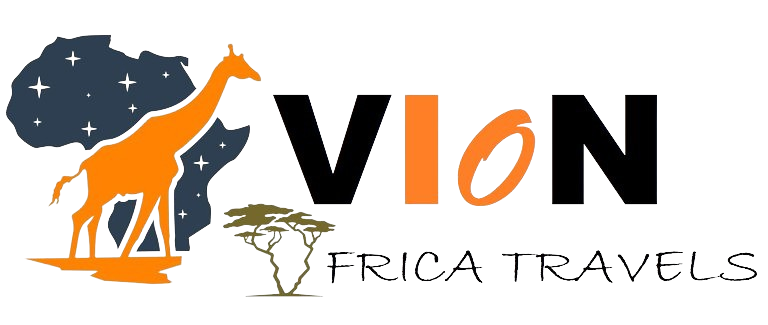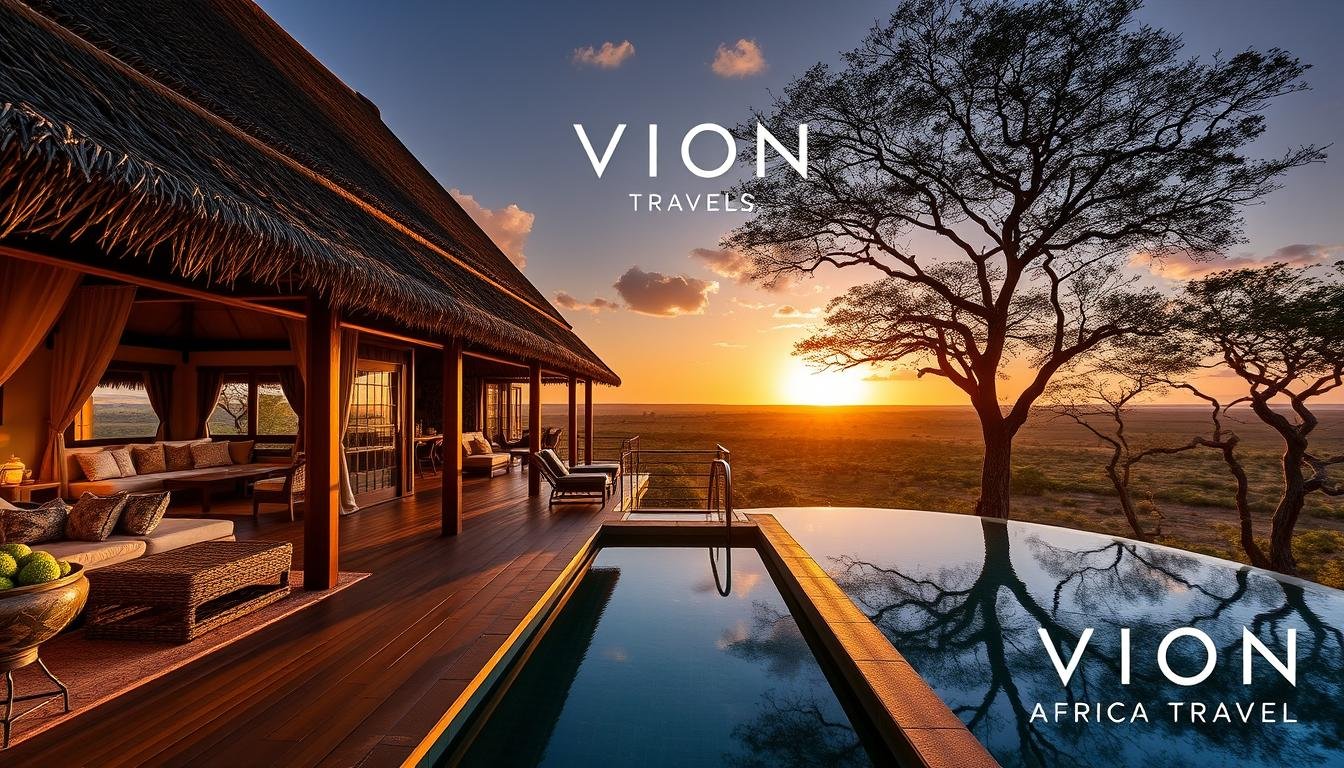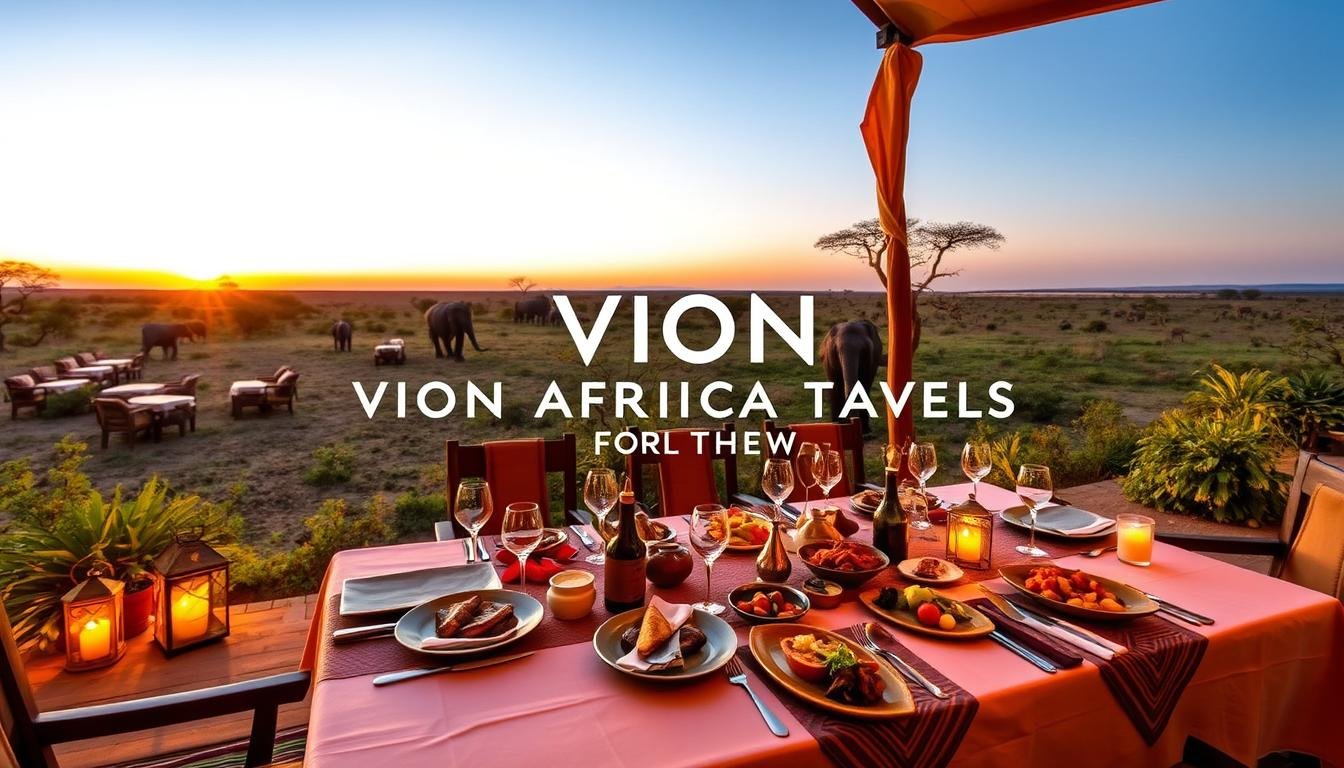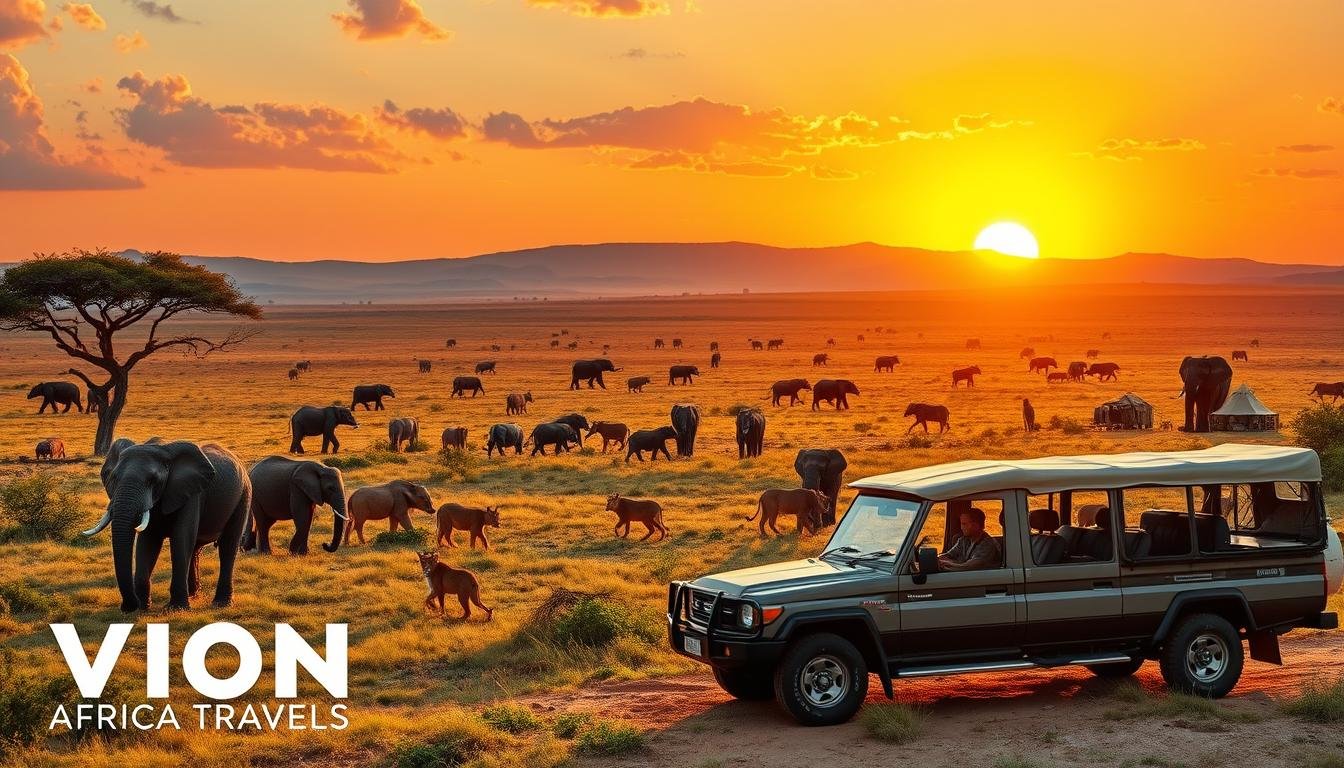Safari trip cost: Many dream of going on an African safari. But figuring out the cost can be tough. This guide will help you understand what affects safari prices. We’ll cover everything from the cost of different safari types to budgeting tips.
By the end, you’ll know how to plan your dream safari. You’ll learn about the role of location and the types of safaris. Plus, we’ll share tips on hidden costs and how to save money.
Key Takeaways
- Safari trip costs vary greatly depending on factors such as location, accommodation, transportation, and activities.
- Researching and understanding the different types of safaris, from game drives to walking safaris, can help you find the right fit for your budget.
- Considering the timing of your trip, choosing the right tour operator, and being mindful of additional expenses can significantly impact the overall cost of your safari.
- Budgeting for permits, fees, and travel insurance is crucial to avoid unexpected costs and ensure a smooth and memorable safari experience.
- With careful planning and research, you can embark on an African safari that aligns with your budget and provides lasting memories.
Understanding Safari Trip Costs
Planning a safari adventure in Africa means knowing what affects prices. The destination, type of safari, and more can change costs. Let’s explore what makes these trips pricey.
What Factors Influence Safari Prices?
Several things affect safari trip costs, including:
- The choice of destination, with countries like Kenya and Tanzania offering a diverse range of safari package deals
- The time of year you travel, as peak seasons and popular holidays can drive up prices
- The level of luxury and amenities you desire, from basic tented camps to high-end lodges
- The mode of transportation, whether you opt for private vehicle, shared safari van, or even air transfers
- The inclusion of additional activities, such as cultural experiences or adventure pursuits
The Role of Region in Pricing
The location of your safari greatly affects the cost. Places like the Serengeti in Tanzania or the Masai Mara in Kenya have higher prices. But, less-visited areas might be cheaper, offering a chance to find hidden spots.
Comparing Different Safari Types
Safari experiences vary, from game drives to luxury retreats. The type you pick can change the price. For example, a private Tanzania safari package deal might be pricier but offers a unique experience.
| Safari Type | Average Cost (per person) |
|---|---|
| Game Drive Safari | $200 – $500 per day |
| Walking Safari | $300 – $800 per day |
| Luxury Safari | $500 – $2,000 per day |
| Budget Safari | $100 – $300 per day |
Knowing these factors helps plan a Kenya safari tour or Tanzania safari package deal that fits your budget. With careful planning, you’ll enjoy your African adventure to the fullest.
Types of Safaris and Their Costs
Planning an African safari adventure offers many exciting options. From thrilling game drives to immersive walking safaris, the choice affects the cost. Let’s look at the different safari experiences and their prices to help you decide.
Game Drives vs. Walking Safaris
Game drives are a popular choice, where you explore from a vehicle. They cost between $50 to $200 per person per day. Walking safaris, on the other hand, offer a closer experience for $100 to $500 per person per day. They cost more due to specialized guides and a more adventurous feel.
Luxury Safaris vs. Budget Options
Luxury safaris offer top comfort and exclusivity for $500 to $2,000 per person per day. They include private villas and gourmet meals. Budget safaris start at $100 to $300 per person per day, with simpler accommodations.
Group Tours vs. Private Safaris
Group tours are cheaper, costing $150 to $500 per person per day. They let you share costs and learn from a guide. Private safaris are more personal, costing $300 to $1,000 per person per day, based on your group size and preferences.
Knowing the costs of different safaris helps you plan within your budget. This way, you can enjoy a memorable African adventure that fits your needs.
Accommodation and Its Impact on Costs
Planning a safari adventure means choosing where to stay is key. Different places to stay can change your trip’s cost a lot. We’ll look at how luxury and budget options in Botswana affect your safari.
Lodges vs. Tented Camps
Lodges and tented camps give different experiences. Lodges have more comforts like bathrooms and meals, but cost more. Tented camps are closer to nature but simpler and cheaper.
Included Amenities and Pricing
What your stay includes can change the cost a lot. Some places offer activities like game drives, while others charge extra. Knowing what’s included helps you plan your budget better.
Booking During Peak vs. Off-Season
When you go on your safari matters too. Prices are higher in peak season, but off-season can be cheaper. But, off-season might mean fewer animals to see or bad weather.
Thinking about your stay’s cost can help you get the best of both worlds. You can have a great African adventure that’s also good for your budget.
Transportation Costs on Safari
Planning an African safari means thinking about transportation costs. From getting to your destination to exploring the vast landscapes, knowing the costs helps you budget. This way, you can enjoy your safari more.
Intra-Country Travel Expenses
Traveling within the country or region is a big part of your African safari costs. This includes flights, train rides, or private transfers between lodges and airports. Prices vary based on distance, travel method, and season.
Vehicle Types and Their Costs
The vehicle you choose for game drives affects your safari trip cost. Vehicles range from basic 4x4s to luxury SUVs. The cost difference is significant, with luxury options being pricier.
Tips for Cost-Effective Transportation
- Shared or group transfers are often cheaper than private ones.
- Look for packages that include transportation to save money.
- Renting a 4×4 for self-driving can be more affordable for exploring.
- Being flexible with travel dates can lower costs.
Understanding transportation costs on an African safari helps you save. By choosing wisely, you can make your safari trip cost more affordable. This way, you can focus on making unforgettable memories.
Wildlife Viewing Permits and Fees
Are you planning a safari in Africa? You need to think about the cost of permits and park fees. These costs can greatly affect your budget, so it’s key to know them before you go.
Understanding Permit Costs
Wildlife viewing permits are needed to enter many famous national parks and reserves in Africa. The price of these permits varies a lot. For instance, Uganda gorilla trekking safari costs can be between $400 to $600 per person for a day. On the other hand, Kenya safari tour rates for a game drive permit start at just $50 per person.
How National Parks Charge Fees
National parks in Africa have different fee levels for entry, vehicle access, and extra activities. These fees can add up fast, so it’s important to check the park’s prices before you go. Some parks offer discounts for kids, students, or visitors during the off-season.
Choosing the Right Time for Wildlife Viewing
- Visit during the dry season for better wildlife spotting as animals gather around water sources.
- The wet season is less crowded and cheaper, but wildlife sightings are less predictable.
- Plan your trip for natural events like the great wildebeest migration in the Serengeti for a unique experience.
Knowing about wildlife viewing permits and national park fees helps you plan your safari better. With some research and planning, you can see more wildlife without spending too much.
Meal Plans and Dining Expenses
Planning an all-inclusive African safari tour or a Tanzania safari package deal? It’s key to know about meal plans and dining costs. These can change a lot, based on your safari type and package features.
Inclusions in Safari Packages
Most safari packages come with at least two meals a day. You’ll get breakfast and either lunch or dinner. Meals can be simple bush fare or fancy dining. Some packages also include snacks, drinks, and even alcohol.
Dining Options in the Wild
Dining on a safari is a special and unforgettable experience. Imagine starting your day with breakfast over a vast savanna or enjoying a candlelit dinner under the stars. Lodges and tented camps offer a variety of local and international dishes.
Budgeting for Extra Meals and Drinks
Even with many meals covered in your package, you might want to try local restaurants or special experiences. Make sure to set aside money for any extra meals, snacks, or drinks you might enjoy during your safari.
| Meal Plan Inclusions | Cost Range (per person per day) |
|---|---|
| Breakfast and Lunch | $50 – $100 |
| Breakfast, Lunch, and Dinner | $80 – $150 |
| All-Inclusive (Meals, Drinks, Snacks) | $100 – $200 |
The cost of meals and dining can differ based on the safari’s luxury and location. Knowing what’s included and budgeting for extras ensures a great dining experience on your all-inclusive African safari tour or Tanzania safari package deal.
Additional Activities and Their Costs
When planning our South Africa safari vacation expenses or Namibia safari cost estimator, we must consider extra activities. These can make our trip more exciting, letting us dive into local culture and explore new things.
Guided Tours and Nature Walks
Guided tours and nature walks are great for exploring the African wilderness. They range from walking safaris with experts to tours focused on specific wildlife. Prices start at about $50 per person, depending on the activity’s length and the guide’s expertise.
Cultural Experiences and Local Tours
Experiencing the local culture is key to a memorable safari. Activities like visiting local villages, watching traditional dances, or learning from artisans are available. Costs vary from $20 to $100 per person, based on the activity’s depth and duration.
Adventure Activities: What Can We Include?
For those seeking thrills, safari trips can include hot air balloon rides, helicopter tours, or skydiving. These activities are pricey, costing $200 to $500 per person. Yet, they offer unique views and unforgettable memories.
When planning our safari, it’s crucial to pick activities that fit our interests and budget. Knowing the costs helps us craft a balanced itinerary that captures the heart of our African journey.
Travel Insurance: A Necessary Cost
When planning an African safari, getting travel insurance is crucial. It gives us peace of mind and can save us money. Let’s explore the different types of travel insurance, their benefits, and what they cover for our safari trips.
Types of Travel Insurance for Safaris
There are many types of travel insurance for our safari trip cost. These include coverage for trip cancellations, medical emergencies, and adventure sports. Each type offers unique benefits and protections for safari travelers.
How Insurance Can Save Us Money
Travel insurance might seem like an extra cost at first. But it can save us money in unexpected situations. It can cover medical emergencies, trip cancellations, and lost or stolen items. This way, we don’t have to use our vacation budget for these expenses.
Understanding Coverage for Safari Activities
Standard travel insurance might not cover all safari activities. It’s important to check the policy details. Make sure it includes coverage for game drives, walking safaris, and other outdoor activities. This ensures we have the right protection and financial security for our trip.
Getting comprehensive travel insurance is a wise choice for an African safari. By knowing the different types of coverage and their benefits, we can plan our adventure with confidence and peace of mind.
Tips for Budgeting Our Safari Trip
Planning a safari trip can be thrilling but also challenging, especially when budgeting. Whether you’re looking at budget-friendly safaris in Africa or luxury options in Botswana, understanding costs is key. Here, we’ll offer practical advice to help you set a budget, spot hidden costs, and save money without sacrificing the safari experience.
Setting a Realistic Budget
To start budgeting your safari, first, set a realistic budget. Look up average costs for your chosen destination and safari type. Include expenses like accommodation, transport, wildlife permits, and food. Remember to add any extra activities or cultural experiences you want to try.
Identifying Hidden Costs
When planning your safari budget, watch out for hidden costs. These can include tips for guides and staff, airport transfers, and optional excursions. Also, consider the impact of exchange rates and local currency price changes.
Saving Money on Safari Trips
- Travel during the off-season or shoulder season to get better prices.
- Join a group tour for a more affordable option than a private safari.
- Choose budget-friendly accommodations like tented camps to cut costs.
- Look into shared safaris or public transport for cheaper travel.
By using these tips, you can create a safari budget that fits your travel style and budget. This way, you can enjoy a memorable safari without spending too much.
Finding the Right Tour Operator
Going on an all-inclusive African safari tour or a Uganda gorilla trekking safari can change your life. But picking the right tour operator is key for a smooth and unforgettable trip. There are important things to think about when choosing the best safari company.
Factors to Consider When Choosing
- Reputation and industry experience
- Variety of safari packages and customization options
- Transparency in pricing and inclusions
- Commitment to responsible and sustainable tourism
- Feedback and reviews from previous clients
Comparing Quotes Effectively
To get the best deal, compare quotes from different tour operators. Look at what’s included, the quality of your stay, and how personalized the service is. Feel free to ask questions and negotiate to match your budget with your dream safari.
Reading Reviews and Testimonials
Reading what others have said can give you great insights. Check out online reviews, social media, and testimonials. This helps you understand the company’s reputation, service, and how happy past clients were. It’s a big help in making a good choice.
“The team at [Altezza Travel] made our African safari tour unforgettable. Their focus on details and making sure we were safe and comfortable was outstanding.”
By looking at these important points, comparing prices, and reading what others say, you can find the perfect tour operator. Whether it’s for an all-inclusive African safari tour or a Uganda gorilla trekking safari, your safari dreams can come true.
The Importance of Researching Costs
Planning an unforgettable safari in Africa means knowing the costs. From Kenya safari tour rates to Tanzania safari package deals, it’s key to understand price changes. This helps us make smart choices and stick to our budget.
Understanding Fluctuations in Pricing
Safari costs change a lot. They depend on the season, location, and what you want to do. Things like peak travel times, animal migrations, and where you stay affect prices. Knowing these changes helps us plan better and find great deals.
Resources for Price Comparison
- Look at online travel sites like Wilderness Safaris and Singita for price comparisons.
- Talk to local tour operators in your destination for special rates.
- Read travel blogs and forums for real advice from other travelers.
Planning Our Safari Budget Wisely
Planning our safari budget is crucial. We need to think about the main costs and extras like where we stay and how we get around. By being smart with our money, we can have a great safari without breaking the bank.
“The key to an unforgettable safari is balancing your dreams with a realistic budget. With thorough research and strategic planning, you can create an experience that exceeds your expectations.”
Understanding safari pricing, using good resources, and smart budgeting lead to an amazing African adventure. We can make our trip memorable and affordable with the right planning.
Currency and Payments: What We Need to Know
Planning a safari adventure means knowing about currency exchange and payment methods. Whether you’re in South Africa or Namibia, being ready for money matters is key. It helps make your trip smooth and worry-free.
Currency Exchange Rates and Fees
First, think about the exchange rate between your money and the local currency. Rates change, so watch them before you go. Also, remember any fees for exchanging money, as they can add up and affect your budget.
Cash vs. Card Payments While Traveling
Decide between cash and cards for payments. Cash is good for small buys but risky for big amounts. Cards are safer but might have extra fees. It’s smart to have both for any situation.
Preparing for Unexpected Expenses
- Save extra money in your budget for surprises, like medical needs or extra activities.
- Look into travel insurance to cover unexpected events.
- Tell your bank and credit card companies about your trip to avoid account problems.
Knowing about currency and payments helps you manage your South Africa safari vacation expenses and Namibia safari cost estimator. This way, you can enjoy the amazing journey ahead without financial stress.
Final Thoughts on Safari Trip Costs
As we wrap up our safari trip cost guide, let’s think about our budget and dreams. An African safari might seem pricey at first. But, knowing what affects the cost helps us plan a trip that fits our budget and dreams.
Reflecting on Our Budget and Expectations
We’ve looked closely at what makes a safari expensive. We’ve talked about how the location, where we stay, and what we do affect the price. Now, we understand the value of a safari and what makes it special. When planning, it’s key to check our budget and make sure our dreams match the trip’s reality.
Embracing the Adventure Ahead
The cost of a safari is important, but it’s not everything. The real magic of a safari is seeing Africa’s amazing nature. Whether we choose a fancy safari or a more affordable one, seeing wildlife, exploring new places, and meeting local people is priceless.
Making Lifelong Memories Without Overspending
Before we go on our safari, let’s plan to enjoy it without spending too much. By budgeting well, finding ways to save money, and being flexible, we can make unforgettable memories. A safari is a once-in-a-lifetime experience. With smart planning, it can also be a trip that’s good for our wallets.



